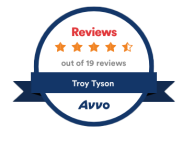Introduction
Starting a new business can be an exciting, exhilarating process. You’ll have high hopes and aspirations, along with the prospect of delivering a great product or service to people. You might even be able to turn a nice profit. Before diving in, however, a new business owner would be wise to turn his or her attention to five key areas which could make or break any business, new or established.
#1 Choose the Right Business Form
Your first step in starting your business will be to choose the form of the business. This should be done with great care, and you may even want to seek the assistance of an attorney (see #2 below) when deciding on this. For most business owners, the available choices will be a sole proprietorship (the business is merely an extension of the owner, with no separate identity), an LLC (business is separate from the owner, some limited liability, not as complex as a corporation), or a corporation (considered a separated entity unto itself, limited liability, possibly some tax benefits, most complexity of any of the types). Choosing a business formation type is a big decision, which will have many long-term effects on your enterprise. Therefore, consult with an experienced professional, or seek out plenty of information on your own, to determine which structure best fits your needs and goals.
#2 Get Good Legal Help
Many new business owners, trying to save on short-term costs, choose to forego the expense of getting legal help. This can be a big long-term mistake. While it may seem like an exorbitant, unnecessary expense to hire an attorney for a fledgling business, doing so can actually save your business considerable time, money, and effort down the line. A good business attorney can have an enormous impact on a new company, and can be helpful in a variety of different areas, such as with document review, contract drafting, human resources, tax preparation and planning, analyzing local and federal regulations, etc.
Additionally, many business lawyers offer flat-rate or discounted pricing to new businesses who need a particular suite of services, which can make legal services more affordable to many young companies. However, it must be stressed that cost avoidance – although it is obviously at the forefront of every business owner’s mind – should not be the primary goal when seeking the services of an attorney or any other professional. As with so much in life, the old adage rings true that “you get what you pay for.” Competent business lawyers who have built up years of experience do not come cheap, but if you choose the right attorney, the investment could pay big dividends for your company in the years ahead.
#3 Find a Great Accountant
#2 and #3 on this list could easily be interchanged – in fact, many business owners and consultants would insist that hiring a good accountant should be a new company’s first professional services priority. Regardless of whether an accountant or attorney should be a business’s first engagement, the value of a good accountant to a new business (or any business, for that matter) cannot be overstated. An experienced accountant can help you get your books set up properly, maintain accurate records, tell you what the numbers mean, give solid financial advice, and much more. A good accountant will also keep you apprised of any regulatory changes affecting your business, and greatly assist you with tax-related issues. Accountants can spot problems in your business early, and also develop protective and preventive measures to implement.
While accountants tend to charge less than experienced attorneys, their rates will still be among the highest that you will pay for professionals. For this reason, many new and small business owners are turned off from using these professionals, believing they have the ability to keep their own books. While many business owners are in fact able to keep their own financial records (and doing so, even if only as a backup, is always a good idea), true accounting is much more than just bookkeeping. Making sure the business abides by current regulations, understanding and complying with tax requirements, grasping the subtleties of share ownership – these and other critical areas are usually outside of the expertise of the business owner. Therefore, it is a good idea to employ a good accountant to ensure that your business is well-advised on these very important matters.
#4 Take Care of HR
Few things will sink a business more quickly than Human Resources mistakes. Employment laws are vast, growing, and changing all the time. Some of the many issues that can impact a new business are the hiring – or not hiring – of potential employees, payment of fair wages, discrimination and harassment (racial, sexual, etc.), properly taking care of employment taxes, terminating employment, employee safety and OSHA regulations, and on and on.
Although it is an overused cliché, the adage that “people are a company’s most important resource” remains true. Whether or not you truly accept this notion, the fact is that the government most certainly does, and your employees will probably feel the same way. So, it is in your best interest, and in the best interests of your new business, to address this area with great diligence, focus, and attention. Seeking counsel from an experienced employment attorney will likely be of great benefit to your company, as would engaging the services of a Human Resources consultant. Your accountant should be able to give valuable guidance on issues pertaining to employment taxes and the like. Finally, much of this information can (and should) be learned independently by the business owner, through self-study, or by speaking with other seasoned business owners. Experience can also be a great teacher – perhaps the best – but, as the wise Ben Franklin said, it “keeps an expensive school,” and if the experiences you gain end up putting you out of business, then the lessons learned won’t be worth much. For these reasons, it’s best to consult with qualified professionals, spend time with successful business owners, and engage in significant study, so that you can get a solid handle on this field, and properly manage the HR concerns of your business.
#5 Manage Your Tax Obligations
Taxes, taxes, taxes. They come around every year, they don’t stop, and, to once again reference the wise Mr. Franklin, they are as certain as death. Neglect of tax-related issues has taken down many otherwise successful enterprises. However, there is no need for your business to suffer the same fate. You will be confronted with potential tax questions from the moment you open the doors of your business – and even before. Your company structure, the number of employees you have, the location of your business – all of these things will have a significant impact on your tax status, and your business will only encounter more tax-related issues (of growing complexity) as it expands and becomes profitable.
Here, a good tax attorney and/or experienced accountant can work wonders on your behalf. For small and newer businesses, who cannot initially afford to hire both, a competent accountant is probably the better choice, as they will likely cost less (although this can vary), and be more familiar with the day-to-day experiences of a business. Tax lawyers are often not as well-versed in operational business details and the consequent impact on taxes; however, they can be of invaluable assistance in addressing higher-level taxation issues, and on keeping business owners abreast of the relevant and often-changing laws and regulations.
Conclusion
There is no experience quite like that of starting a new business. It is an exciting adventure, and has the possibility of producing freedom, wealth, and achievement. However, building a business properly requires laying a solid foundation by adequately addressing the items mentioned above. Doing so from day one will help ensure that you get your business started on the right footing.
NOTE
All legal references are made with respect to Indiana law. Please check the laws of your local jurisdiction if you live in another state.
The articles in this blog are for informational purposes only. No attorney-client relationship is established through the publication of these articles.







